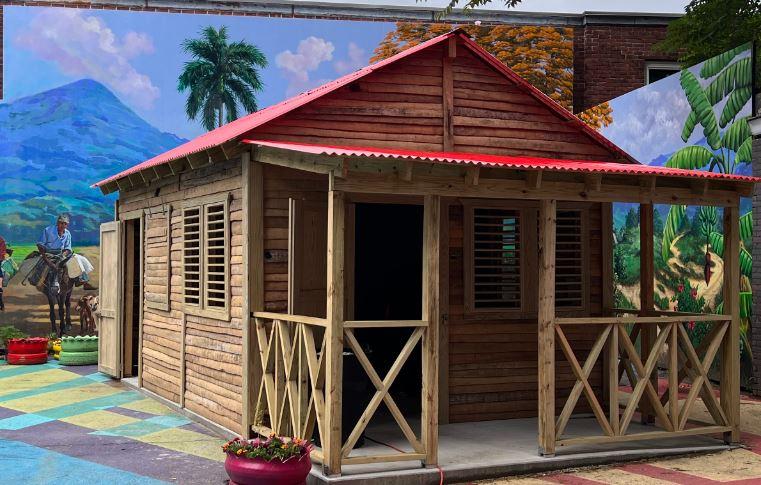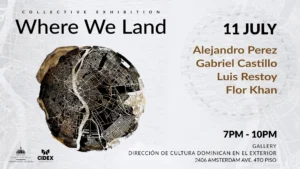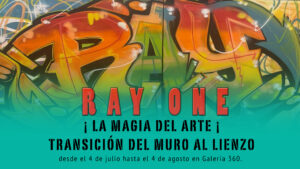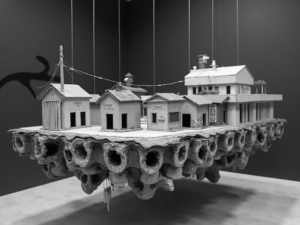Photos from Punto Urban Art Museum Web Page of La Casa De La Abuela
Last week, I had the opportunity to visit one of the most prominent artistic projects celebrating Dominican identity in Massachusetts: La Casa de la Abuela. This innovative space, created by The Punto Urban Art Museum and the North Shore Community Development Coalition, is located in the El Punto neighborhood of Salem. Accompanied by Saniego Sánchez, director of The Punto Urban Art Museum, and Yinette Guzmán, project manager of design and space creation, my excitement grew as we approached. I immersed myself in every detail that evokes a typical rural village house in the Dominican Republic.
The project is surrounded by immense murals that give the feeling of being inside a Dominican countryside home. These murals were painted by artists Ramón Santiago, Melanio Guzmán, and Rigo Peralta, and are known as the Mural del Campo.
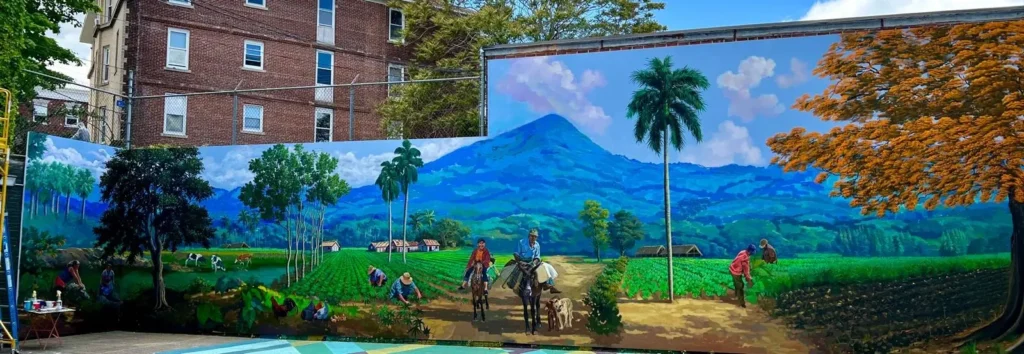
Designed to connect deeply and unconventionally with the area’s immigrant residents, this space is a replica of a typical countryside home, a symbol of family and tradition. It represents the essence of every Dominican, keeping culture, history, and the human connection to roots and family alive. Its creation offers the North Shore Community Development Coalition a unique opportunity to engage the community, activate a community space, and promote economic development.
Residents will be able to remember their roots through storytelling, sharing cultural foods, and offering visitors a space that celebrates their heritage. The design includes four simple wooden walls, a metal roof, and wooden shutter-style windows, elements that evoke the aesthetic of an authentic Dominican countryside home.
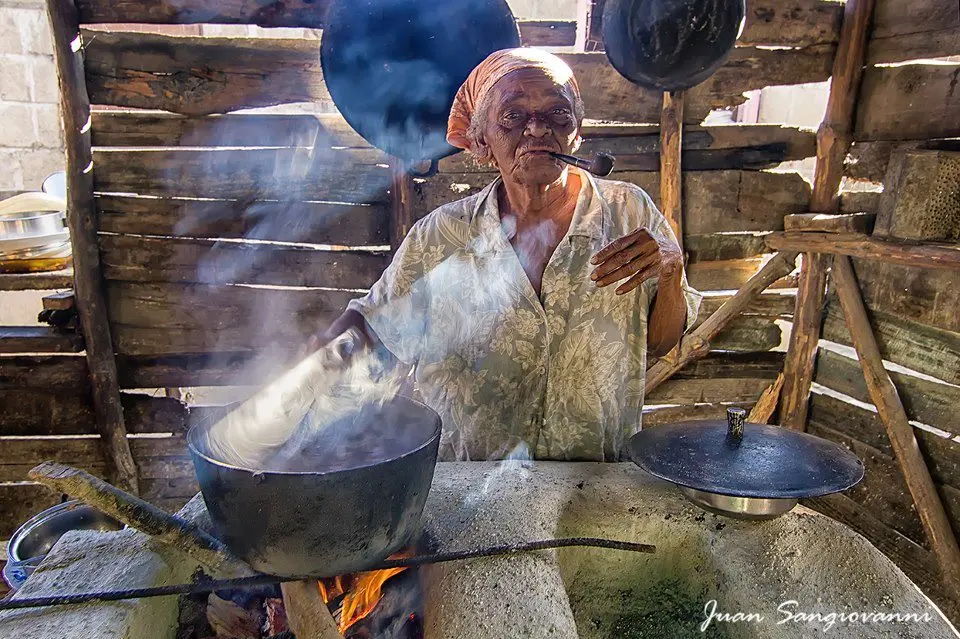
How many of us growing up in any Dominican town or countryside don’t remember those country kitchens? The stove, the stove, firewood and charcoal to cook food. Cuaba to light them. The clay jar or barrel, fresh rain water. The fabric coffee strainer. The guy The pestle, the grinder, the enameled jugs or the aluminum ones. A Jigüero or a square wooden tray, to clean the rice… Zinc or reed roof. Some without doors or windows. Always separated from the house. In one corner hooked with a hemp rope, a bunch of bananas ripening, in another side the provisions, the charcoal… Plates, spoons, cauldrons, pots… Text from dominicanflave.com
The main space will feature a realistic scene of a living room, reflecting the humble life typical of a Dominican grandmother. In addition, there will be an area for a small temporary experience simulating a convenience store, similar to those found in the Dominican Republic. Over time, more elements will be added to enrich the visitor experience.
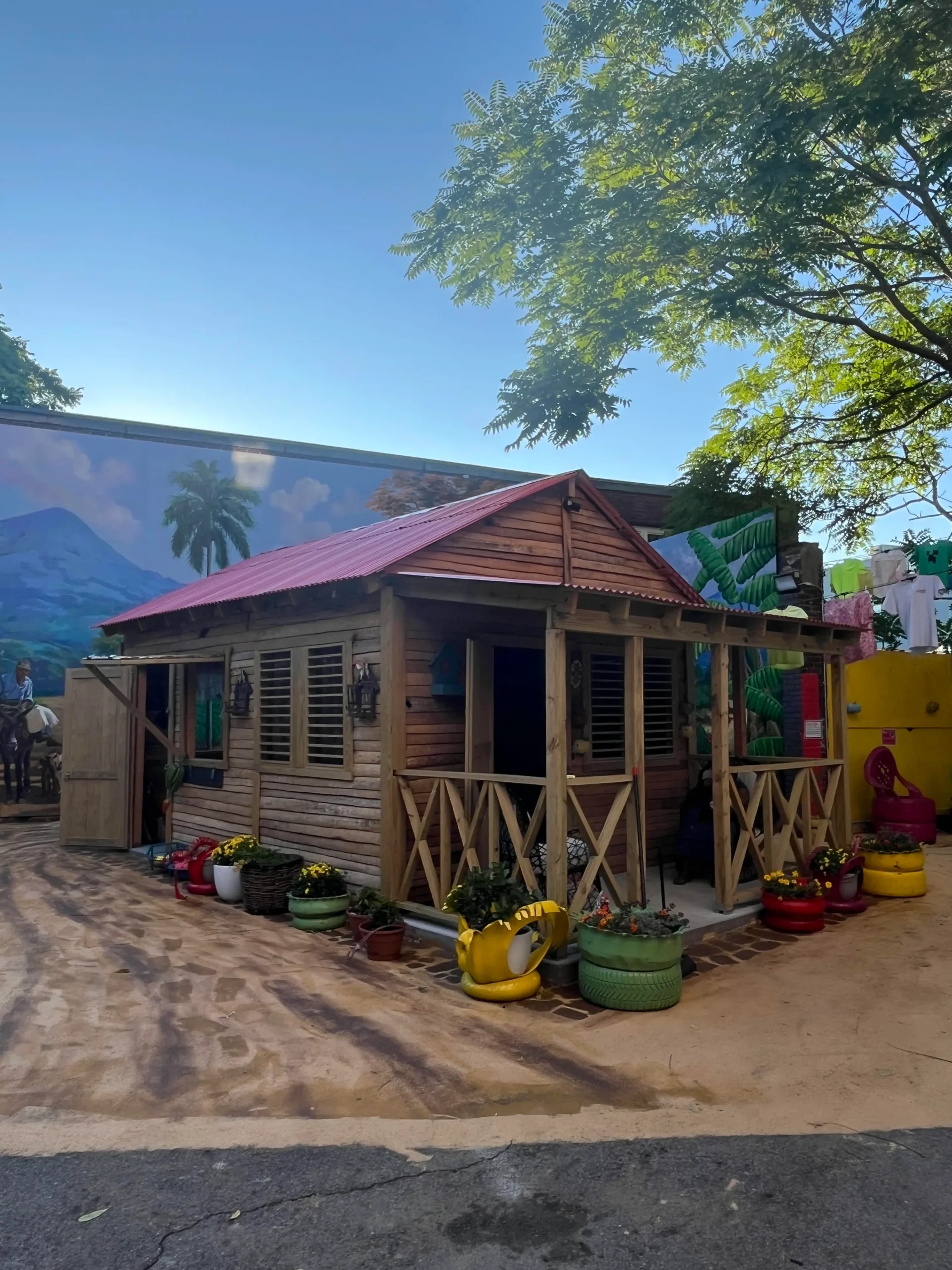
It is crucial to highlight the significant contribution of Dominicans to the local economy. Representing 6% of Boston’s population (37,576 people), they own 16,360 businesses and approximately 551 stores in the city. In 2016, they generated $403 million in wages, and their demand as consumers supported 1,320 additional jobs, contributing $202.2 million to the city’s gross product. Additionally, they contributed $20.5 million in state taxes and $6.7 million in sales taxes in the same year (Source: U.S. Census Bureau, 2013-2017 American Community Survey, Public Use Microdata Sample (PUMS), Bureau of Labor Statistics (BLS)).
This project is not only an artistic expression but a vital space that celebrates and strengthens Dominican cultural identity in Massachusetts, fostering connections and promoting the collective memory of its community.
Location: El Patio behind 98 Lafayette St, Salem MA , Check Ig to plan your visit @urban.art.museum to see open hours

